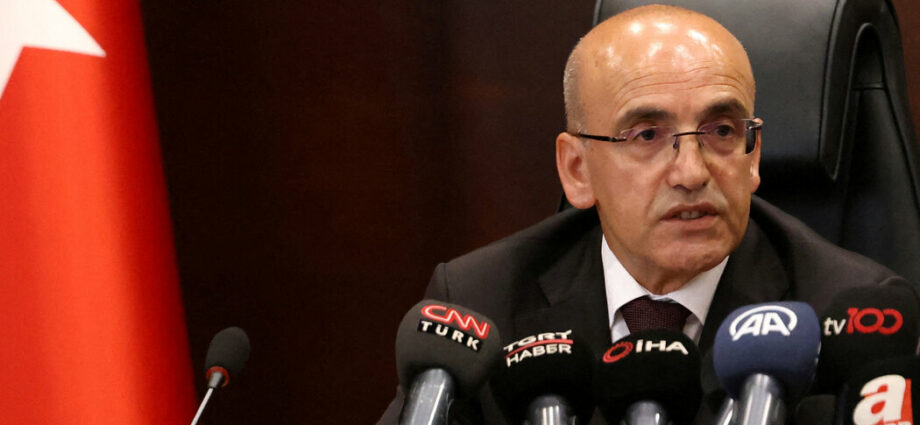The News
The value of the Turkish lira as measured in dollars plunged Wednesday by more than 7 percent to a record low, signaling a potential shift in the government’s economic policy.
Under President Recep Tayyip Erdogan, Turkey’s government has been at pains to prop up the value of the lira, creating incentives to prevent people from exchanging the currency and pushing the central bank to sell off foreign exchange reserves.
But Mr. Erdogan, who won re-election on May 28, shuffled his cabinet this past weekend and appointed a new finance minister: Mehmet Simsek, a former deputy prime minister who is well-regarded in financial circles.
Mr. Simsek made clear that changes are in store for the economy. “Turkey has no other choice than to return to a rational ground,” he said after his appointment. “A rules-based, predictable Turkish economy will be the key to achieving the desired prosperity.”
Why It Matters
Wednesday’s drop in value was the largest since the lira crashed in December 2021. Over the past two years, the value of the lira has declined 60 percent against the dollar; a lira is now worth only 4.3 cents.
Turkey’s $900 billion economy has taken a beating, and the falling currency makes everything the country imports — from medicine to crude oil — more expensive. It can also push businesses and households who have borrowed in dollars into bankruptcy.
A change in the country’s economic policy could reverse what several economists argue has been an unsustainable and reckless course.
Background
Turkey has been struggling with huge debts, an inflation rate of just under 40 percent, and a declining currency. Many analysts say that the country’s economic problems have been exacerbated in recent years by Mr. Erdogan. The president has repeatedly flouted conventional economic wisdom by maintaining that high interest rates fuel inflation.
Most economists argue the opposite: Higher interest rates makes borrowing more expensive, which slows down investment and spending, and, in turn, reins in price increases. While such tightening slows inflation, it also risks triggering a recession, a major reason that Mr. Erdogan has avoided the policy.
When central bankers resisted pressure to lower interest rates, Mr. Erdogan fired them. The tactic undermined investors’ confidence in the independence of the central bank, which caused the value of the lira to fall further.
The central bank had been selling off its reserves of dollars in order to artificially prop up the currency, but those reserves had fallen steeply. According to Goldman Sachs, “net foreign assets are in negative territory,” after accounting for liabilities.
Kadri Tastan, a senior fellow at the German Marshall Fund, a public policy think tank based in Brussels, said that for ordinary citizens, the exchange rate is one of the most visible signs of the economy’s health. That is why the government did everything it could to protect the lira’s value before the presidential election, Mr. Tastan said.
What’s Next?
While repeated drops in the lira have previously been a sign of investors’ faltering confidence in Turkey’s economic course, the latest slump appears to be the result of the government’s decision to no longer defend the currency’s value by selling foreign exchange reserves.
Because the previous exchange rate was a result of government manipulation, Mr. Tastan said, “probably we will see the Turkish lira’s value go down further.”
Now though, he said, the decline is “sign of a return to a more rational monetary policy.”
Patricia Cohen is the global economics correspondent based in London. Since joining The Times in 1997, she has also written about theater, books and ideas. She is the author of “In Our Prime: The Fascinating History and Promising Future of Middle Age.” @PatcohenNYT • Facebook
Source: Read Full Article
-
U.S. Pending Home Sales Unexpectedly Increase For Third Straight Month In February
-
In Modi’s Amritkal, Worrying Decline Of Economy
-
Burger King To Invest $400 Mln To Boost U.S. Sales Growth
-
Comcast Reveals Contract Terms For Recently Elevated President Michael Cavanagh
-
China Weak Inflation & Falling Factory Gate Prices Keep Door Open For Policy Easing


